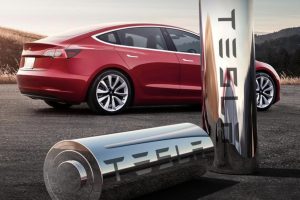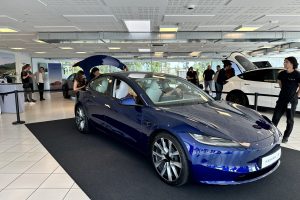- 💼 Arbitration Requirement: Tesla driving range complaints must be pursued through individual arbitrations rather than combined class action lawsuits, according to a federal judge.
- 🚗 Agreement Provision: Drivers agreed to arbitration provisions for resolving issues with Tesla when purchasing their cars, obliging them to individually pursue their claims.
- ⚖️ Legal Ruling: U.S. District Judge Yvonne Gonzalez Rogers from Oakland, California, mandated that owners pursue their complaints individually.
- 📈 Exaggerated Range Claims: A group of Tesla owners alleged that the automaker lied about driving range capabilities, inflating possible travel distances on a full charge.
- 🛣️ Varied Range Factors: Driving range on electric vehicles can fluctuate due to factors like driving style and outside temperature, affecting the accuracy of range estimates.
- 🏦 Legal Precedent: Tesla has been successful in sending many cases to arbitration due to agreements made at the time of purchase, including complaints related to Autopilot functionality.
- 📉 Disputed Claims: Tesla has dismissed claims of exaggerated driving range estimates as “unmeritorious,” defending the accuracy of its range figures.
- 🤝 Individual Resolution: Tesla owners will now have to handle their complaints individually, following the judge’s ruling, rather than pursuing them collectively through class action lawsuits.
Electric vehicles (EVs) have revolutionized the automotive industry, offering environmentally friendly transportation options with innovative features. Tesla, a leading manufacturer in the EV market, has garnered praise for its cutting-edge technology and sleek designs. However, recent developments regarding driving range complaints have brought legal complexities into focus.
Understanding the Arbitration Requirement 💼⚖️
A federal judge’s ruling mandates that Tesla driving range complaints must be pursued through individual arbitrations rather than combined class action lawsuits. This requirement stems from agreements made by drivers at the time of purchasing their Tesla vehicles, binding them to arbitration provisions for issue resolution. U.S. District Judge Yvonne Gonzalez Rogers underscored the importance of individual pursuit in addressing complaints.
Allegations of Exaggerated Range Claims 📈🛣️
A group of Tesla owners has alleged that the automaker misrepresented driving range capabilities, inflating possible travel distances on a full charge. While driving range on EVs can vary due to factors such as driving style and outside temperature, the accuracy of range estimates remains a crucial consideration for consumers. Discrepancies between advertised and actual driving ranges can lead to dissatisfaction and legal disputes.
Legal Precedent and Disputed Claims 🏦📉
Tesla has faced various legal challenges related to its vehicles, including complaints regarding Autopilot functionality. The company has successfully directed many cases to arbitration, leveraging agreements agreed upon during vehicle purchase. In response to allegations of exaggerated driving range estimates, Tesla has dismissed such claims as “unmeritorious,” defending the accuracy of its range figures.
Implications for Tesla Owners and Consumers 🚗🤝
The recent legal ruling emphasizes the importance of individual resolution for Tesla owners with driving range complaints. While collective action through class action lawsuits may seem appealing, arbitration offers a more personalized approach to dispute resolution. Tesla owners are encouraged to familiarize themselves with the arbitration process and seek legal counsel if necessary to navigate their grievances effectively.
Recommendations for Tesla and the EV Industry 🌱🔍
As Tesla continues to innovate and expand its product offerings, maintaining transparency and accuracy in driving range claims is paramount. Clear communication and proactive measures to address consumer concerns can enhance trust and confidence in the brand. Additionally, the EV industry as a whole should prioritize consumer protection and legal compliance to foster a sustainable and thriving market environment.
In conclusion, the legal landscape surrounding Tesla driving range complaints underscores the importance of adherence to agreements and the significance of accurate representation in product marketing. By addressing consumer grievances through arbitration and upholding integrity in advertising, Tesla can uphold its commitment to customer satisfaction and lead the EV industry towards a brighter, more sustainable future.





